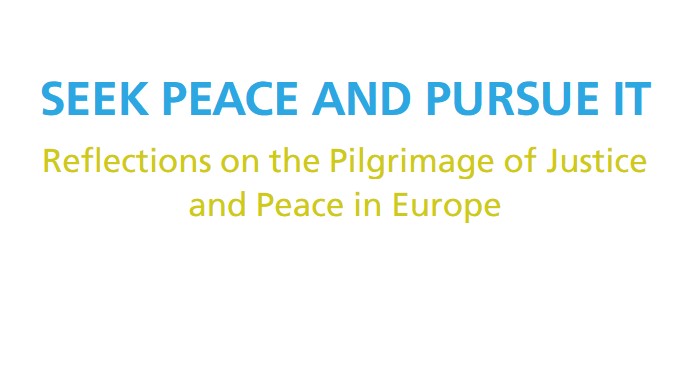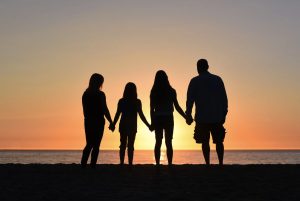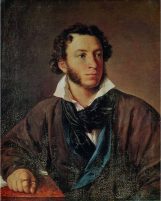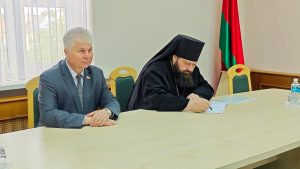Belarus: A Christian Call for Justice and Peace in the Midst of Political Crisis

An Era of Crisis as Impulse for Justice and Peace
There is a political crisis in Belarus in the aftermath of the presidential election in 2020. As in any crisis, the issues of justice and peace are, on the one hand, especially vital. On the other hand, within an authoritarian regime resisting democratic transition, action seeking to further justice and peace is seen as threatening and is therefore suppressed. This leaves little opportunity for anything but underground activity.
When for the short time, church leaders raised their voices in August2020 against unprecedented violence and torture—the regime’s response to peaceful protestors demanding fair elections—dictator Lukashenko expressed his dissatisfaction immediately:
“I am surprised by the position of our confessions. My dear clergy, settle down and mind your own business! People should come to churches to pray! Churches, churches are not for politics. People should come there with their souls, as it has always been. Don’t go along with the renegades. You will be ashamed and shameful of the position you, some of you, are now taking. And the state will not look at it with indifference.”[1]
This statement was pronounced on 22 August. On 26 August, Metropolitan Pavel (Ponomoryov) of Minsk, the Head of the Belarusian Orthodox Church, was removed from his position by the Holy Synod of the Russian Orthodox Church “by his own application.” He had previously stated that violence wasunacceptable and had also visited survivors of police violence in a hospital. His Catholic counterpart, Metropolitan of Minsk Tadeusz (Kondrusiewicz) was denied entrance into Belarus on his way back from Poland on 31 August; on his 75th birthday in January 2021, he was removed from his position “due to retirement.” Another outspoken Belarusian Orthodox hierarch, Archbishop Artemy of Hrodna, who supported the priests of his diocese in their activities for justice and peace, and spoke in a prophetic way against injustice, violence, and the political instrumentalization of the Church, was removed from his position in June 2021 by the Holy Synod of the Russian Orthodox Church by request of the Synod of the Belarusian Church for “health reasons.”[2]
This special situation of political crisis, lawlessness, and repression made the issues of justice and peace a priority in the civil society.
The churches were called to be voices of justice and peace. At the same time, claims for justice and peace were viewed as signs of disloyalty to the regime and therefore very risky. As Reformed theologian Zmicier Chviedaruk stated, this special situation put the church in a predicament, where it had to make “a difficult choice between peaceful silence and risky proclamation.”[3]
Peaceful Protest: Not Christian by Name, but Christian in Deed
In the events prior to the presidential elections, Belarusian churches and many Christians did not advocate for fair elections, democracy, rule of law, or human rights. A limitation on their perceived scope of concerns resulted in their exclusion, or self-exclusion, from public debates on many topics, including climate justice, corruption, human rights, and even freedom of religion.
The “culture wars,” as they have played out in Belarus, have associated abortion, sexual freedom, destruction of traditional family, and LGBTQI+ issues with the West. Aleksandr Lukashenko’s regime has been pictured as a paternalistic government defending its people from the West’s bad influence[4].
Lukashenko has been in power since 1994. In the presidential election of August 2020, he sought to manipulate votes and imprison alternative candidates.
The desire for fair elections, rather than any political or ideological agenda, mobilized Belarusians usually far from political activism into protest. Churches and Christians were not on the front lines of the movement for fair elections, with two exceptions. One month before the elections, a Roman Catholic lay activist, Artiom Tkaczuk, launched the campaign “A Catholic does not participate in stealing elections”—meaning Catholics should not falsify their votes even if under duress.
This was supported by many priests all around the country. On the eve of the last day of the elections, a social media flash mob of two dozen Belarusian Orthodox priests and officials sent out the message that “the Orthodox are against stealing votes, humiliation, and pressure on the individual.”
The nights of 9–12 August seemed to become a point of no return. There was police violence against peaceful protesters in many cities and town allover the country. In the midst of a media blockade, several protestors were murdered, and thousands underwent torture and other inhumane treatment. In the shock of this unprecedented violence, the protests didn’t vanish, but started to grow.
They included more and more types of protests, like chains of solidarity with flowers, singing on the streets, drinking tea in the neighbourhoods, and praying together ecumenically.
That was the starting point of the nationwide protest, in which, for the first time in recent history, the participation of Christians and churches became very visible.
The experience of blatant falsifications and violations during the election, and police violence against peaceful protestors in its aftermath, motivated church leaders, priests, and lay people into spontaneous pro-democratic engagement, from which previously they had been rather alienated.
The fact that people responded to the violence with flowers and chanting, smiles and humour, and prayers and art, is remarkable. Political prisoner Paval Sieviaryniets, one of the Orthodox faithful, described it in a letter from prison: “They are against us with berets, and we respond to them with hearts.”[5]
It was not churches who initiated this kind of peaceful protest, but its spiritual value recognized by Christians. After these dark nights, women dressed in white and holding flowers and smiling went to the centre of the cities, and for a time, the violence seemed to be overcome. Roman Catholic bishop Yuri Kasabutsky recognized, that even if the action was not Christian by name, it was Christian in essence: You took the flowers, you came out, you stood, you showed the whole world what confused everyone—in our country and in allother countries. You came out, you started waving these flowers. Your smiles, your smiles—you just amazed everyone, everyone was shocked. . . . You came out and you began defeating evil with good… After all, if you went out and started fighting, struggling, it would not bear fruit. It has borne fruit because you came out and you overcame this evil with your goodness. You may not have known that but you defeated the devil with your goodness; the devil was also confused and did not know what to do next[6].
However, this commitment to a peaceful, democratic, and lawful approach, to non-violence over violence, dialogue over revolution, new fair elections in pursuit of legitimate demands over forceful seizure of power didn’t result in a democratic transition or in a reign of peace and justice in the country. Exposed and defenceless against authoritarian power and violence, the Belarusian people failed to overturn the authoritarian regime. Moreover, they “have had to pay a very high price—the price of blood, wounds, traumas, tears, imprisonment, exile, insecurity, injustice, and, finally, the price of time.”[7]
Sviatlana Tsikhanouskaya, the leader of the Belarusian democratic movement and the candidate who opposed Lushenko in the 2020 election, lamented this in an open letter to Pope Francis, inspired by his encyclical Fratelli tutti: How much longer do we have to go down this path? How many more will be arrested, fired from their workplaces, beaten and expelled from the country, before our voice is heard by the authorities? Who will help us stand up and heal our wounds? Who will help us restore justice? . . . Will the voice of the Church and the voice of the people be able to break through the armoured windows of cars, through the shields of the police, through the disabled Internet?[8]
The Failure of Democratic Transition; Seeking Justice under Oppression
The question remained unanswered by the Holy Father and by the events that played out. Indeed, despite the unprecedented engagement of Belarusians across the country in peaceful protests, the movement failed to launch democratic changes. Churches failed to play a role in resolving the crisis. Instead of launching a democratic transition, civil activism provoked a huge wave of repression in 2020–21.
The space for legal and safe operation rapidly shrank, the registration of many NGOs was withdrawn, and independent media were designated as extremist and closed down.
There has been large-scale persecution of human rights activists, bloggers, academics, professionals, and also of church leaders and believers who have raised their voices against violence and for democratic changes. For his part, Lukashenko announced 2021 to be a year of “national unity.”
This reinterprets the concept of peace as the absence of all protest, as a return to the pre-election status quo.
There are more than 1000 people currently being held as political prisoners, including several dozen Orthodox, Roman Catholic, and Evangelical believers. Among them is a mother of five children, Catholic activist, and volunteer Volha Zalatar, who was sentenced to four years in prison. In her last words in court, she referred to Archbishop Desmond Tutu and the Truth and Reconciliation Commission in South Africa, saying: “I’m here because I am a caring person. I am here because I live by God’s commandments. I’m here because I am a mom who wants to protect her children”[9].
”Among the Catholic faithful was ecological activist Vitold Ashurok, who was arrested after publicly praying the rosary and who died in prison under suspicious circumstances[10]. The Orthodox priest Siarhei Rezanovich, his wife Liubou, and their son Pavel, were accused of terrorism. The Orthodox believer Mikalai Vitsikau wrote a letter to local newspaper in support of the call for a nationwide discussion of the new constitution, and was arrested and detained[11]. The Reformed intellectual and philosopher UladzimirMatskevich was arrested and detained in August 2021; his works are now under examination for extremism, and he had to go on a hunger strike to raise awareness of his case[12]. A religious community was forbidden to sing the traditional hymn “Almighty God”; an Orthodox believer was arrested for lighting a memorial candle in a window on the anniversary of the murder of Raman Bandarenka (a young activist and Orthodox believer beaten to death by security forces in the yard of his house)[13].
Churches, religious communities, religious leaders, and activists experience both external pressure from the regime and internal pressure from their religious institutions. Even the priests and employees of churches and church-related initiatives who were previously outspoken have become less visible since the end of 2021—or have had to flee the country. Leaders loyal to the regime have been installed in some churches. Priests are generally forbidden to preach on “political matters,” and communities may not sing certain prayers and hymns, as they could be interpreted as political and result inpersecutions.
As a result, Christian communities and Christians have either fled the country or act underground. Thousands of other people have undergone arrest, detention, and torture. The constant risk of imprisonment, as well as forced migration, has destroyed the institutional basis of the democratic movement in Belarus.
Christian Vision for Belarus
Despite all the risks and challenges, Belarusian Christians and churches continue their struggle for justice and peace. In prayer chats, in informal groups of friends, in professional ecclesiastic communities, like associations of Orthodox choir conductors or Protestant pastors, the discussions continue.Christian opinion leaders speak on social networks “only for friends,” in letters from prison, or from forced exile. In September 2020, as a kind of starting point for different initiatives, the group Christian Vision was formed by ordained ministers, theologians, and Christian activists of the Orthodox, Roman Catholic, Greek Catholic, Anglican, and Evangelical churches.
They spontaneously came together to pray, to reflect, to help, to monitor, and to act in response for the political crisis. The group has a profound ecumenical character.
The mission of the Christian Vision Group is to empower “Christians and churches to become a prophetic voice in the society and to contribute to the democratic process, restoration of the rule of law, justice and genuine peace, as well as to facilitate national dialogue and understanding.”[14]
It is not by accident that the group insists on the adjective genuine while speaking about peace.
The concept of peace has been abused both by authoritarian politicians and by church leaders instrumentalizing theological ideas to justify injustice and violence. Words and concepts are twisted: the notions of love and care can mask the pursuit of control; “protection of traditional values” can act as a cover for human rights violations; the notion of “social justice” can disguise excessive engagement by the state into all domains of social life and suppression of anything independent; repression is justified by “security”; and oppression is dubbed “unity.”
A great common critical theological work is needed to examine not only thelived experience, but also theological language and concepts, to distinguish the many faces of injustice and oppression that are often hidden behind intentions and practices which look and sound good, but which are anything but. In this theological work, voices from other contexts can serve as a ray of light, aiding the discernment between genuine and false justice and peace.
[1] https://belarus2020.churchby.info/lukashenko-cerkvi-kostely-ne-dlya-politiki/
[2] https://belarus2020.churchby.info/archbishop-artemy-hrodna/
[3] https://cne.news/artikel/670-weekly-column-from-belarus-sharing-the-gospel-with-fellow-prisoners
[4] Natallia Vasilevich, “Going Political? The Involvement of Churches in Public Debates on Prolife Issues in Belarus,” in Theology and the Political: Theo-political Reflections on Contemporary Politics in Ecumenical Conversation, ed. Alexei Bodrov and Stephen M. Garret (Leiden: Brill Academic Publishers, 2020), 200-27.
[5] https://www.facebook.com/bchdparty/photos/a.606949899440627/2170584083077193/?type=3&_rdr
[6] https://belarus2020.churchby.info/vatican-reactions-to-belarusian-crisis/
[7] https://belarus2020.churchby.info/christians-in-the-struggle-for-justice-in-belarus/
[8] https://tsikhanouskaya.org/en/events/news/f46df99254de4dd.html
[9] https://belarus2020.churchby.info/volha-zalatars-final-speech-in-court/
[10] https://belarus2020.churchby.info/vitold-ashurak/
[11] https://belarus2020.churchby.info/statement-of-christian-vision-mikalai-vitsikau/
[12] https://belarus2020.churchby.info/tag/uladzimir-mackevich/
[13] https://belarus2020.churchby.info/monitoring/
[14] https://belarus2020.churchby.info/the-mission-of-the-christian-vision-group-in-the-current-political-crisis-in-belarus/
Vasilevich, Natallia “Belarus: a Christian Call for Justice and Peace in the Midst of Political Crisis”, Seek Peace and Pursue It. Reflections on the Pilgrimage of Justice and Peace in Europe (eds. Matthew Ross, Jin Yang Kim), WCC, 2022, 101-107
Link









